Professional Spline Shafts Manufacturing Services
Precision broaching, involute splines, and custom spline shaft solutions for demanding industrial applications. From automotive transmissions to heavy machinery – we deliver excellence in every tooth.
Precision Broaching
Custom Solutions
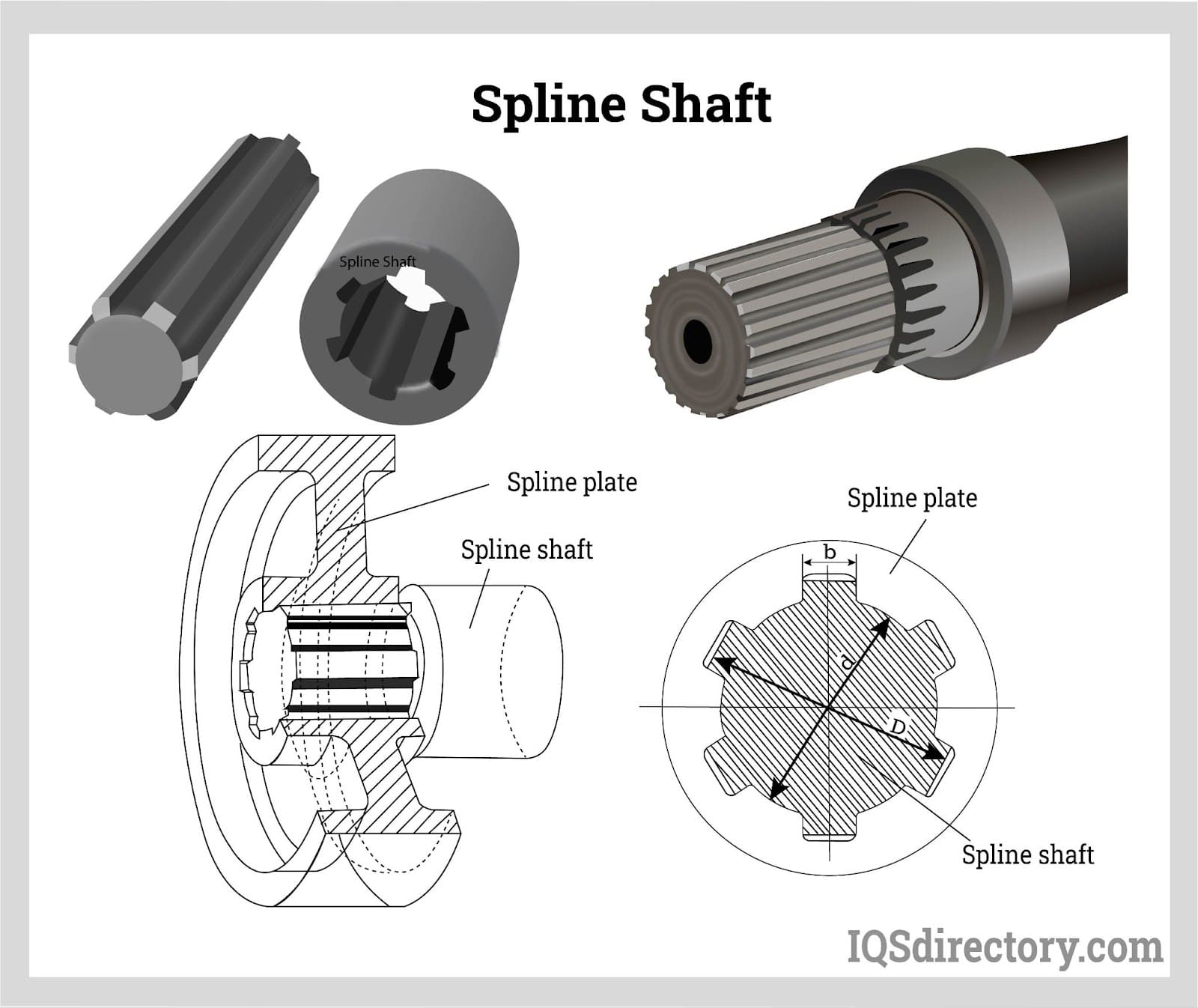
Comprehensive Spline Shaft Manufacturing Services
We specialize in precision manufacturing of spline shafts using advanced broaching, hobbing, and CNC machining techniques. Our expertise spans involute splines, straight-sided splines, and custom configurations for critical power transmission applications.
Precision Broaching Services
Advanced internal and external spline broaching using state-of-the-art equipment. Capable of producing complex spline profiles with exceptional accuracy and surface finish.
- Internal spline broaching
- External spline cutting
- Custom broach tooling
Involute Spline Manufacturing
Specialized in involute spline production using hobbing and shaping processes. Compliant with SAE, ANSI, ISO, and DIN standards for maximum compatibility.
- SAE involute splines
- ANSI B92.1 standards
- Custom pitch diameters
Custom Spline Design
Engineering support for custom spline configurations, stress analysis, and optimization for specific torque transmission requirements and operating conditions.
- CAD design services
- Stress analysis
- Prototyping support
Quality Inspection
Comprehensive quality control using coordinate measuring machines (CMM), gear inspection centers, and specialized spline gauging equipment.
- CMM inspection
- Spline gauge verification
- Material certification
Spline Repair & Rebuild
Expert repair and rebuilding services for worn or damaged spline shafts, extending equipment life and reducing replacement costs.
- Spline restoration
- Hard chrome plating
- Re-machining services
Rush Order Capability
Emergency and rush order processing for critical applications. Express machining and expedited delivery options available for urgent requirements.
- 24/7 production capability
- Express delivery
- Emergency support
Spline Shaft Types & Configurations
We manufacture a comprehensive range of spline shaft types, each engineered for specific torque transmission requirements and operating conditions. Our expertise covers all major spline standards and custom configurations.
Involute Spline Shafts
Involute splines feature curved tooth profiles that provide superior load distribution and stress characteristics compared to straight-sided splines. These are ideal for high-torque applications where precise centering and maximum strength are critical.
Technical Advantages
- Higher torque capacity
- Better stress distribution
- Self-centering capability
- Precise angular positioning
Manufacturing Standards
- SAE J499 standard
- ANSI B92.1 specification
- ISO 4156 compliance
- DIN 5480 standards
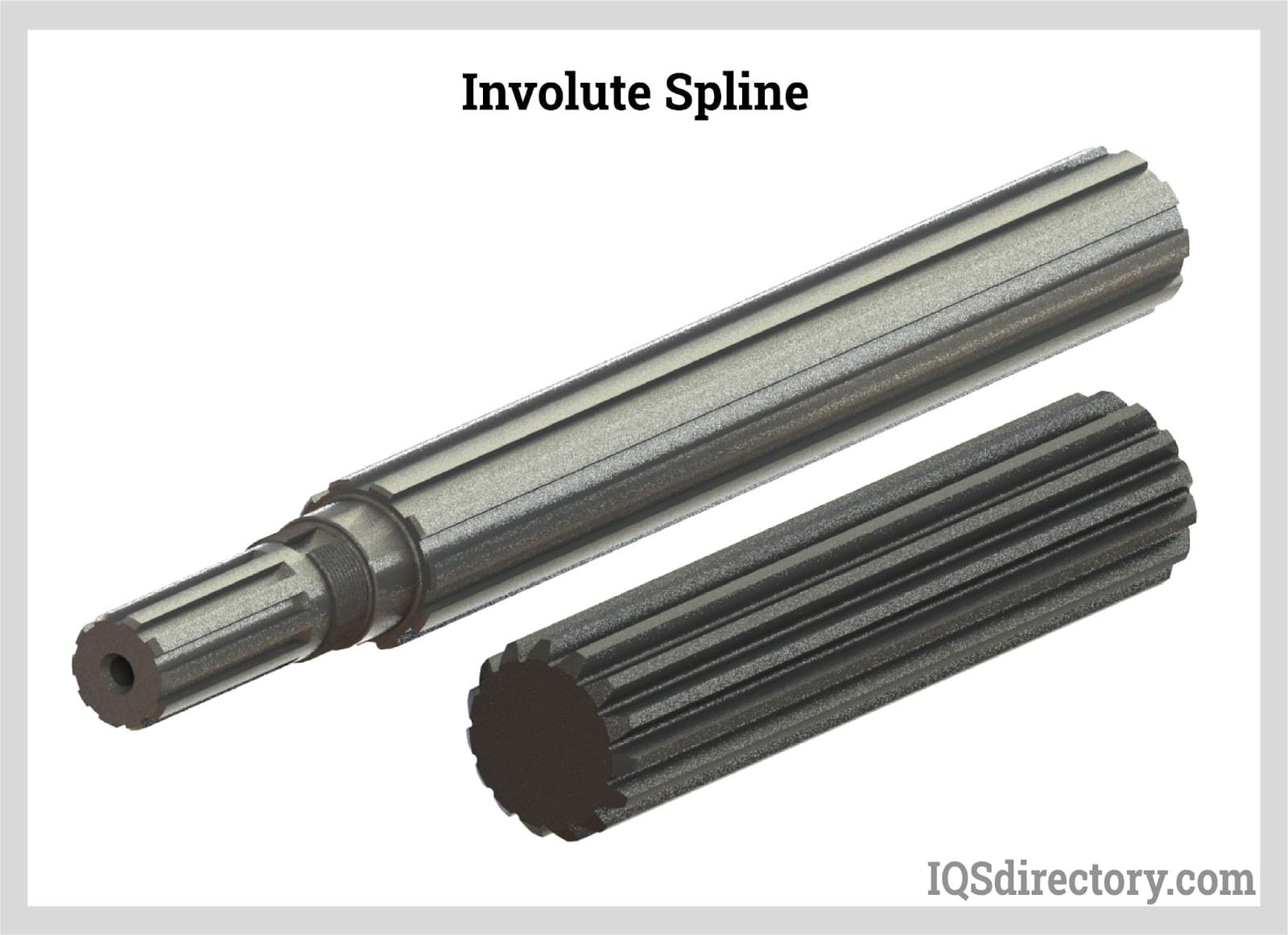
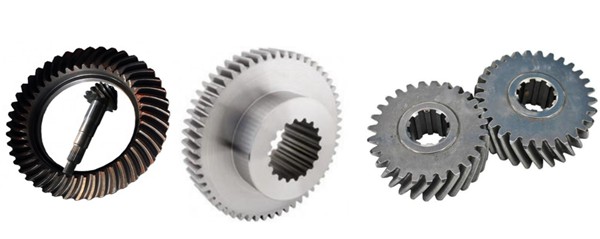
Straight-Sided Spline Shafts
Straight-sided splines offer simplicity in manufacturing and are widely used in agricultural, construction, and general industrial applications. They provide reliable torque transmission with cost-effective production methods.
Key Features
- Simple tooth geometry
- Cost-effective manufacturing
- Easy inspection
- Reliable performance
Common Applications
- Agricultural equipment
- Construction machinery
- PTO drive systems
- Industrial couplings
Internal vs External Spline Configurations
Internal Splines
Internal splines are machined into the bore of hubs, couplings, and gears to receive external splined shafts. These provide secure, positive engagement for torque transmission while allowing for axial movement when required.
Manufacturing Methods:
- • Broaching for high volume production
- • Shaping for complex geometries
- • Wire EDM for specialized profiles
- • CNC milling for prototypes
External Splines
External splines are cut on the outside diameter of shafts to mate with internal splined components. These shafts transmit rotational motion and torque while maintaining precise angular positioning and concentricity.
Manufacturing Methods:
- • Hobbing for involute profiles
- • Cold forming for high volumes
- • CNC milling for custom designs
- • Grinding for precision finishing
Advanced Manufacturing Processes
Our state-of-the-art manufacturing facility employs multiple precision machining processes to produce spline shafts that meet the most demanding specifications and quality requirements.
Precision Broaching
Our advanced broaching machines use specially designed broach tools to cut internal and external splines with exceptional accuracy and surface finish quality.
- • Vertical and horizontal broaching
- • Custom broach tool design
- • High-speed cutting capabilities
- • Automated handling systems
Gear Hobbing
Continuous generation process using hob cutters to produce involute splines with precise tooth geometry and excellent concentricity control.
- • CNC hobbing machines
- • Dry and wet cutting options
- • Multiple axis coordination
- • Real-time quality monitoring
CNC Machining
Multi-axis CNC machining centers provide flexibility for complex spline geometries, prototypes, and specialized configurations not suitable for other processes.
- • 5-axis machining capability
- • CAD/CAM programming
- • Adaptive machining strategies
- • In-process measurement
Complete Process Flow
Design & Engineering
CAD modeling, stress analysis, and tooling design
Material Preparation
Cutting, heat treatment, and pre-machining operations
Spline Cutting
Broaching, hobbing, or CNC machining of spline profiles
Heat Treatment
Hardening, tempering, and stress relieving processes
Quality Control
Dimensional inspection, surface testing, and certification
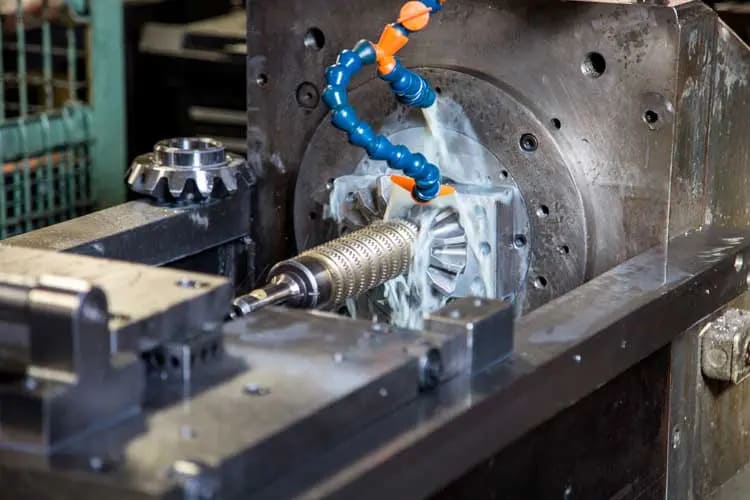
Why Choose Broaching for Spline Manufacturing?
Broaching is the preferred method for high-volume spline production due to its ability to create complex profiles in a single pass with exceptional accuracy and repeatability.
Process Advantages
- Single-pass operation
- Excellent surface finish
- High dimensional accuracy
- Consistent quality
Production Benefits
- High production rates
- Minimal setup time
- Reduced tool wear
- Lower per-part costs
Technical Specifications & Capabilities
Our manufacturing capabilities span a wide range of sizes, materials, and precision requirements to meet diverse industrial applications and custom specifications.
Manufacturing Capabilities
Size Range
- Outer Diameter: 0.25″ – 18″
- Length: 0.5″ – 120″
- Module: 0.5 – 12
- Tooth Count: 6 – 200 teeth
Precision Standards
- Tolerance: ±0.0001″
- Surface Finish: 16 Ra μin
- Concentricity: 0.0005″ TIR
- Straightness: 0.001″/ft
Standard Compliance
- SAE J499 Involute Splines
- ANSI B92.1 Involute Splines
- ISO 4156 Straight-Sided Splines
- DIN 5480 Involute Splines
- JIS B1603 Parallel Key
- Custom specifications
Materials & Heat Treatment
Steel Grades
- • Carbon Steel: 1018, 1045, 1050
- • Alloy Steel: 4140, 4340, 8620
- • Tool Steel: A2, D2, O1
- • Stainless: 303, 316, 416, 17-4PH
- • Pre-Hard: P20, 4140 HT
- • Specialty alloys available
Heat Treatment Options
- • Through hardening
- • Case hardening (carburizing)
- • Induction hardening
- • Nitriding
- • Stress relieving
- • Cryogenic treatment
Surface Treatments
- • Black oxide coating
- • Zinc plating
- • Chrome plating
- • Passivation
- • Phosphate coating
- • Custom coatings
Quality Assurance & Testing
Dimensional Inspection
- • Coordinate Measuring Machine (CMM)
- • Gear inspection centers
- • Optical comparators
- • Specialized spline gauges
Material Testing
- • Chemical composition analysis
- • Hardness testing (Rockwell, Brinell)
- • Tensile strength testing
- • Metallurgical examination
Certifications
- • ISO 9001:2015 certified
- • AS9100D aerospace
- • Material test certificates
- • First article inspection reports
Industrial Applications & Markets Served
Our spline shafts are integral components in power transmission systems across diverse industries, from high-performance automotive applications to heavy-duty industrial machinery.
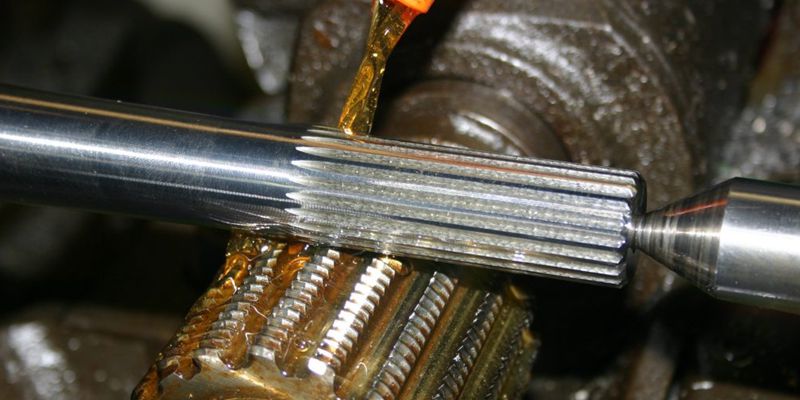
Automotive & Transportation
Spline shafts are critical components in automotive drivetrains, providing reliable torque transmission while accommodating the dynamic loads and vibrations inherent in vehicle operation.
Drivetrain Components
- CV joint shafts
- Transmission input/output
- Differential side gears
- Steering columns
Performance Benefits
- Precise torque transmission
- Vibration reduction
- Angular positioning accuracy
- Extended service life
Heavy Machinery
Construction, mining, and agricultural equipment rely on robust spline shafts for power transmission under extreme operating conditions.
- • Excavator drives
- • Bulldozer transmissions
- • Harvester PTO systems
- • Crane winch drives
Aerospace & Defense
Critical flight control systems and propulsion components require precision spline shafts with exceptional reliability and performance.
- • Actuator drive systems
- • Engine accessory drives
- • Landing gear mechanisms
- • Rotor shaft assemblies
Marine & Offshore
Marine propulsion systems and offshore equipment utilize corrosion-resistant spline shafts designed for harsh saltwater environments.
- • Propeller shaft couplings
- • Thruster drive systems
- • Winch mechanisms
- • Steering gear systems
Energy & Power
Power generation equipment, including wind turbines and generators, depends on precision spline shafts for efficient energy transmission.
- • Wind turbine gearboxes
- • Generator drive systems
- • Pump drive couplings
- • Compressor shafts
Industrial Machinery
Manufacturing equipment and automation systems require precise spline shafts for accurate positioning and reliable power transmission.
- • Machine tool spindles
- • Robotic actuators
- • Conveyor drives
- • Press mechanisms
Oil & Gas
Drilling equipment and processing machinery utilize specialized spline shafts engineered to withstand extreme pressures and temperatures.
- • Drilling rig drives
- • Pump jack systems
- • Valve actuators
- • Compressor drives
Application-Specific Design Considerations
High-Speed Applications
Balanced rotors, precision bearings, and optimized tooth geometry for minimal vibration
Heavy-Duty Torque
Increased tooth count, case hardening, and stress-optimized profiles for maximum load capacity
High Temperature
Special alloys, thermal expansion compensation, and enhanced lubrication provisions
Corrosive Environments
Stainless steel construction, protective coatings, and sealed bearing arrangements
Frequently Asked Questions
Get answers to common questions about spline shaft manufacturing, specifications, and applications. Our technical experts are available for detailed consultations.
What is the difference between involute and straight-sided splines?
Involute splines feature curved tooth profiles that provide superior load distribution and higher torque capacity compared to straight-sided splines. The involute geometry allows for better stress distribution across the tooth contact area, making them ideal for high-performance applications. Straight-sided splines have parallel sides and are simpler to manufacture, making them cost-effective for general industrial applications where extreme loads are not encountered.
How do you determine the correct spline specifications for my application?
Spline specification depends on several factors including torque requirements, speed, operating environment, space constraints, and mating component specifications. Our engineering team evaluates these parameters along with industry standards (SAE, ANSI, ISO, DIN) to recommend the optimal spline type, pitch diameter, tooth count, and material selection. We also consider factors like misalignment accommodation, axial movement requirements, and service life expectations.
What manufacturing tolerances can you achieve for spline shafts?
Our precision manufacturing capabilities allow us to achieve extremely tight tolerances. For spline dimensions, we routinely hold ±0.0001″ on critical features, with surface finishes as fine as 16 Ra microinches. Concentricity is typically maintained within 0.0005″ TIR, and straightness within 0.001″ per foot of length. These tolerances may vary based on part size, material, and specific requirements, but we consistently deliver precision that meets or exceeds industry standards.
Can you manufacture spline shafts from exotic or specialized materials?
Yes, we work with a wide range of materials beyond standard carbon and alloy steels. This includes stainless steel grades (303, 316, 416, 17-4PH), tool steels (A2, D2, O1), titanium alloys, and various specialty materials. We also have experience with pre-hardened materials and can coordinate specialized heat treatments like nitriding, carburizing, and cryogenic processing. Material selection is often driven by application requirements such as corrosion resistance, high temperature operation, or weight reduction.
What is your typical lead time for custom spline shafts?
Lead times vary based on complexity, quantity, and material requirements. For standard materials and configurations, typical lead times range from 2-4 weeks for prototypes and 4-8 weeks for production quantities. Complex geometries requiring custom tooling may extend to 6-12 weeks. Rush orders can often be accommodated with expedited processing, and we maintain inventory of common materials to minimize delays. We provide detailed scheduling information with every quote.
Do you provide design and engineering support for spline applications?
Absolutely. Our engineering team provides comprehensive design support including spline specification recommendations, stress analysis, finite element analysis (FEA), and optimization for manufacturing. We can work from customer prints, reverse engineer existing parts, or develop completely new designs. Our CAD capabilities include 3D modeling, detailed drawings, and rapid prototyping support. We also provide application engineering to ensure optimal performance in your specific operating environment.
What quality certifications and documentation do you provide?
We are ISO 9001:2015 certified and AS9100D certified for aerospace applications. Standard documentation includes dimensional inspection reports, material test certificates, heat treatment certifications, and first article inspection reports. We maintain full traceability from raw material through final inspection. For critical applications, we can provide additional documentation such as statistical process control charts, capability studies, and specialized testing reports. All inspection is performed using calibrated equipment with current certifications.
Can you repair or rebuild existing spline shafts?
Yes, we offer comprehensive repair and rebuilding services for worn or damaged spline shafts. Our capabilities include dimensional restoration through welding and re-machining, hard chrome plating to build up worn surfaces, and complete re-manufacturing of spline profiles. We can often restore parts to better-than-original specifications using improved materials and manufacturing techniques. This service is particularly valuable for obsolete parts or large, expensive components where replacement costs are prohibitive.
